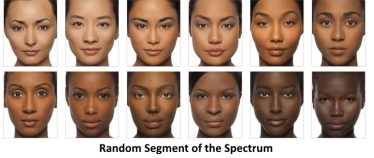 Lately I’ve been listening to a podcast called “Black Girls Talking.” I’m not black and I don’t get half of the pop references they make (who is Kreayshawn?) but I listen because they talk about race in a way that no one will when white people are present. They’re upfront and angry. They’re not trying to make me feel comfortable and I find that refreshing.
Lately I’ve been listening to a podcast called “Black Girls Talking.” I’m not black and I don’t get half of the pop references they make (who is Kreayshawn?) but I listen because they talk about race in a way that no one will when white people are present. They’re upfront and angry. They’re not trying to make me feel comfortable and I find that refreshing.
They’ve talked about Beyonce, Rihanna and Nicki Minaj as black women at the top of the industry. I realized that those are the lightest skinned black women I can think of, and I wonder if there are equally “talented” artists with darker complexions that didn’t receive the same backing from publicists and record labels.
My African dance teacher posted on Facebook yesterday that Zoe Saldana will be playing Nina Simone in a movie to be released in December. My teacher pointed out that Zoe’s complexion is significantly lighter than Nina’s and the make-up artist put prosthetics in her mouth to alter her facial structure. This is considered “colorism.”
In regards to police violence against black men, I’ve heard, “The boys have to work twice as hard for half the respect.” Perhaps that’s an accurate way to describe the plight of dark-complexioned women in America?
~~~
(I just Googled Kreayshawn. Normally I’m cool with terrible music and everyone doing their thing on YouTube. But she is so bad that it’s not even amusing.)
Unfortunately, it is yet another issue in the Black community. I never heard of that podcast. I’ll look it up. If you’re interested or have a chance check out the documentary Dark Girls, available on Netflix.
LikeLiked by 1 person
I will check that out on Netflix. Thank you!
LikeLike